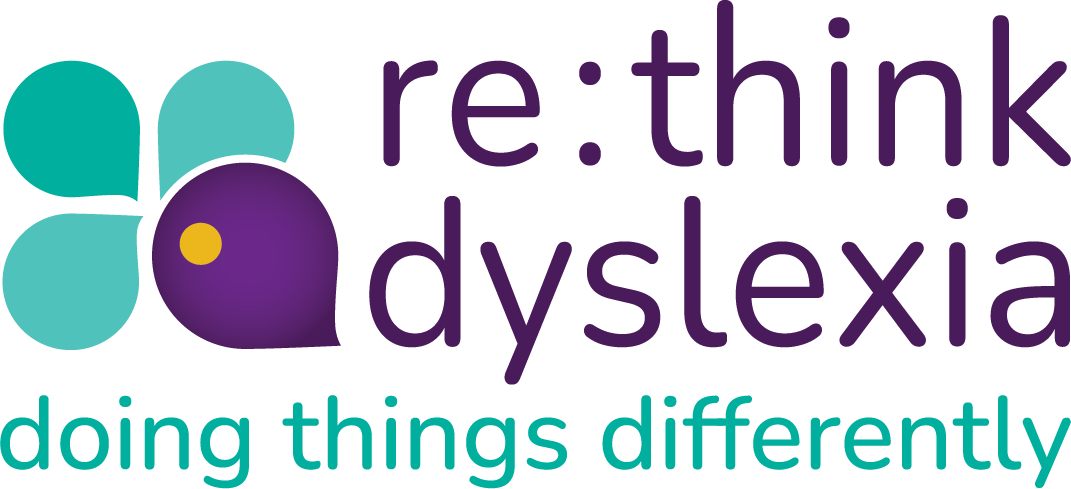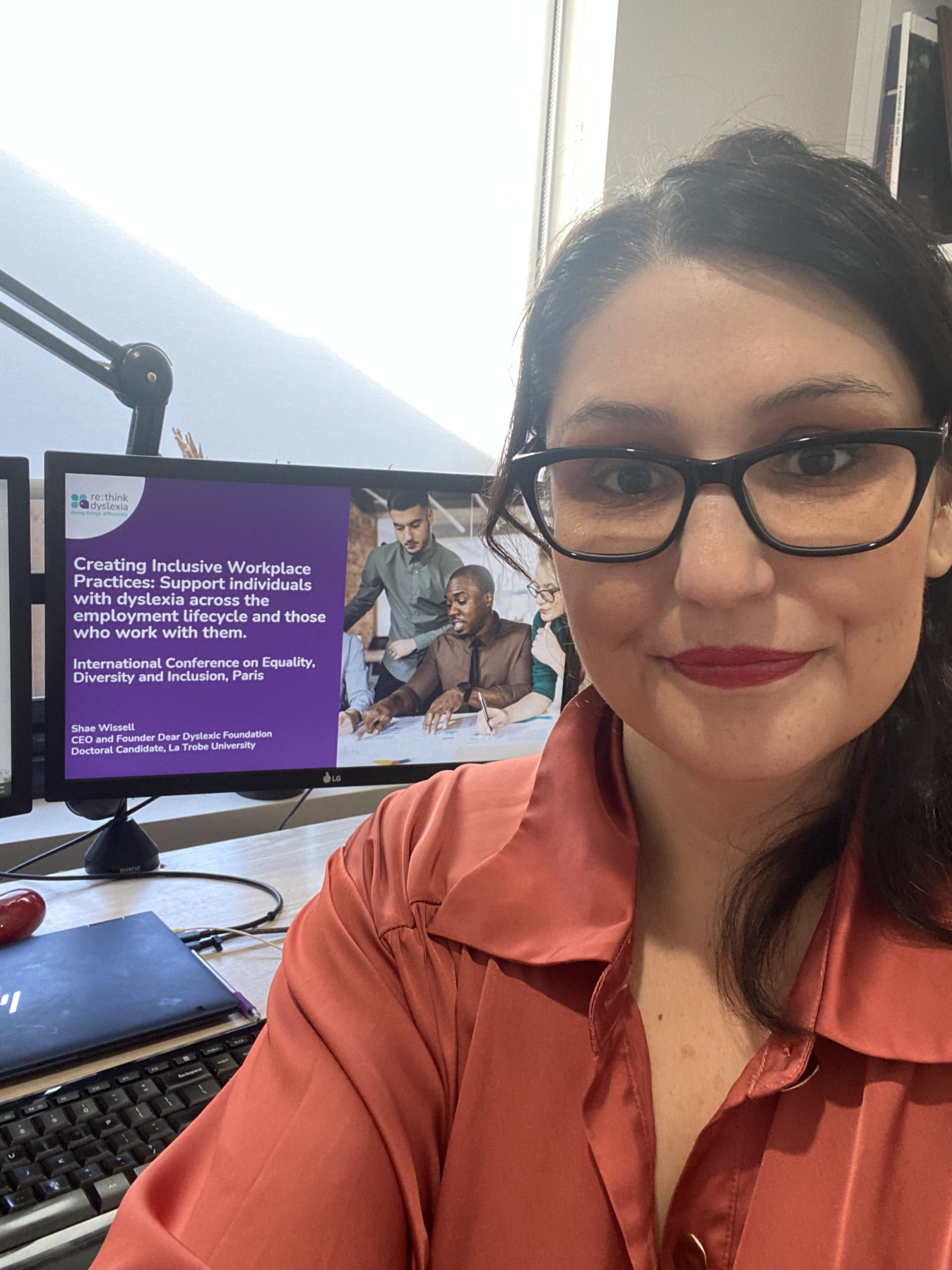Disrupt the norm: Dyslexics we need to seize our seat at the table!
 In the ever-evolving landscape of the modern workplace, diversity and inclusion are pivotal forces that drive innovation, creativity, and progress. Among the various dimensions of diversity, neurodiversity stands out, with dyslexia being a significant facet. For dyslexic adults, coming out and standing up for themselves in the workplace is not just an act of personal empowerment; it’s a vital step towards securing a seat at the table of professional success. This article delves into why it’s crucial for dyslexic individuals to embrace our identity and contribute our unique strengths to the workforce.
In the ever-evolving landscape of the modern workplace, diversity and inclusion are pivotal forces that drive innovation, creativity, and progress. Among the various dimensions of diversity, neurodiversity stands out, with dyslexia being a significant facet. For dyslexic adults, coming out and standing up for themselves in the workplace is not just an act of personal empowerment; it’s a vital step towards securing a seat at the table of professional success. This article delves into why it’s crucial for dyslexic individuals to embrace our identity and contribute our unique strengths to the workforce.
It’s not easy and I never thought I wanted to be a poster girl for dyslexia advocacy but here I am. I hope you can join me in this journey of getting more of us at the table, in conversations and in the minds of our leaders.
Overcoming Barriers: The Challenge of Coming Out
The first step I believe is most important to recognise is that dyslexic individuals may have valid reasons for not immediately coming out in the workplace. We need to create a psychologically safe environment for this to happen. From my own lived experience and through my research with La Trobe University demonstrated that there was significant fear of being misunderstood, facing discrimination, or being unfairly judged all of which creates barriers to embracing our identity openly. Concerns about potential negative impacts on career progression or opportunities can also weigh heavily on the decision. The journey towards self-disclosure is deeply personal, and organisations must actively work to create an environment where dyslexic individuals feel safe and empowered to share our experiences. So how can we support and encourage each other to step out from the shadows and take a stand? Embracing Identity: A Source of Power
Acknowledgment of Individuality: The decision to reveal one’s dyslexia is an assertion of individuality, a statement that recognises the diverse cognitive landscape that enriches our world. By openly acknowledging dyslexia, individuals challenge the stigma surrounding it and contribute to the broader conversation on neurodiversity. However, many dyslexic adults might hesitate to disclose this due to fears of being perceived as less capable or facing potential discrimination.
Empowerment through Visibility: Coming out as dyslexic brings visibility to the condition, allowing others to relate, empathise, and understand. This visibility has the power to break down misconceptions, creating a more informed and compassionate environment. Yet, the fear of judgment or exclusion can make it difficult for us to share our dyslexia openly, potentially causing them to hide our unique strengths and insights.
Shifting Perspectives: Each instance of a dyslexic adult coming out creates a ripple effect, challenging preconceived notions of what dyslexia means. By reshaping perceptions, dyslexic individuals help others see the condition not as a limitation, but as a unique perspective with its own set of strengths. Unfortunately, concerns about being misunderstood or underestimated might discourage dyslexic adults from sharing our experiences.
Contributing Strengths: A Unique Perspective
Creativity and Innovation: Dyslexic individuals often possess a strong aptitude for creative thinking and innovation. Our unique cognitive processes allow us to approach problems from angles that others might not consider, leading to breakthrough ideas and solutions. However, the fear of not being taken seriously might prevent some dyslexic from fully showcasing their creative potential. Don’t stifle us!
Adaptability: Overcoming the challenges presented by dyslexia instils a deep sense of adaptability and resilience. Dyslexic adults are skilled at finding alternative approaches and strategies, a trait highly valuable in a rapidly changing professional landscape. Yet, the fear of being seen as incapable of handling change might discourage us from embracing our adaptability.
Spatial Thinking: Many dyslexic individuals excel in spatial reasoning and three-dimensional thinking. This is not a skill of mine! This skillset is invaluable in fields such as architecture, design, and engineering. However, concerns about not fitting into traditional modes of thinking might lead to downplaying these strengths.
Intuitive Problem Solving: Dyslexic individuals often rely on intuition and a holistic approach to problem-solving. This can lead to the identification of patterns and connections that others might overlook. The fear of being perceived as “unconventional” might discourage them from sharing our insights.
Securing a Seat at the Table: A Collective Endeavor.
Now we need a seat at the table. Although many think that Autistic (2%) and ADHDs (6%) are the largest neurodivergent groups, we know and the research tells us that Dyslexics are the leading neurodivergent group in the workplace and in the community affecting 1 in 10 of us. It’s crucial that organisations and society as a whole start addressing the challenges we are facing. It is our responsibility to start advocating for change and more comprehensive support systems.
Awareness Building: When we come out to inspire conversations about neurodiversity, leading to increased awareness and understanding among colleagues, employers, and the wider society. However, the fear of being singled out or treated differently might hinder dyslexic individuals from initiating these conversations.
Demand for Inclusivity: As more dyslexic individuals come out and assert our presence, the demand for inclusive workplace policies and accommodations becomes stronger. This benefits not just dyslexic employees, but all employees who might require varying forms of support. Yet, the fear of potential backlash or resistance from management might hold some individuals back from advocating for change.
Representation Matters: The presence of dyslexic individuals in leadership positions challenges traditional notions of success and leadership. Our journey serves as an inspiration for others facing similar challenges, proving that potential knows no boundaries. However, the fear of the added pressure that comes with being a representative might discourage dyslexic individuals from seeking leadership roles.
Fostering Inclusive Cultures: Dyslexic adults’ courage to stand up for ourselves encourages organisations to foster inclusive cultures that celebrate diverse talents and perspectives. This, in turn, contributes to an enriched work environment and enhanced team dynamics. Yet, the fear of being a lone advocate might make individuals hesitant to take on this role and that’s. There might be other ways you can support inclusion and diversity without disclosing.
Paving the Way for Change
By coming out and standing up for ourselves in the workplace and in our community, we become catalysts for change. Our actions create a ripple effect that challenges biases, encourages inclusive practices, and cultivates a culture where unique perspectives are not just accepted but celebrated. Each step towards visibility and authenticity contributes to a brighter, more diverse future for workplaces around the world. By embracing our identity, dyslexic individuals not only claim our seat at the table but also help set the stage for a more inclusive, innovative, and compassionate professional realm. Overcoming the fears that hold us back is not easy, but it’s a necessary journey toward fostering understanding, dismantling misconceptions, and unleashing the full potential that we as dyslexic individuals bring to the workplace and beyond!
If you want to discuss how you can get a seat at the table book a free exploration session.
Join our Dear Dyslexic Community on Facebook. This group has been set up to talk about all things dyslexia, to provide peer support to those who are dyslexic. This is an open, safe forum free from discrimination, but not free from spelling or grammar mistakes!


